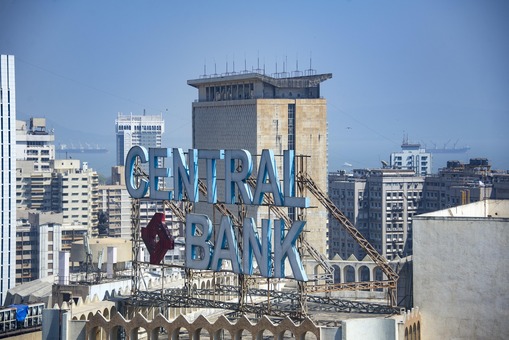Retiring in Vietnam: visa options, living costs, and where to settle

If you're dreaming of an affordable, culture–rich place to spend your golden years, Vietnam is quickly becoming a top choice. It's ideal for budget–minded retirees, lovers of tropical weather and anyone craving a lifestyle shift with deep local flavor.
Wondering how to retire in Vietnam? You’re not alone — the number of Americans retiring in Vietnam is growing steadily — with around 400 already calling places like Da Nang and Hoi An — home, drawn in by deep local traditions and a welcoming expat scene.
Retire in Vietnam – why it’s on every foreigner’s radar
Living in Ho Chi Minh City is remarkably affordable — about 70–75% cheaper than New York — while places like Da Nang offer retirees year-round warmth, beachfront cafés, and $2 bowls of pho. The blend of climate, cost, and culture makes Vietnam especially attractive for those seeking comfort without overspending.
US expats often praise the friendliness of locals, particularly in Nha Trang and Hanoi where English is more commonly spoken. With a monthly budget of $800–1,200, many enjoy a safe, relaxed lifestyle. Compared to regional neighbors, Vietnam’s visa rules are stricter than the Philippines or Thailand — but rental costs can be 40% lower. For example, a one-bedroom flat in Hoi An averages just $300 — about half of what you’d pay in Manila.
Pros and cons of retiring in Vietnam
For many US persons, Vietnam offers an alluring lifestyle — but a successful transition hinges on more than sunshine and savings.
Why retirees fall in love with Vietnam
-
Affordable living: Many annuitants report living comfortably on $1,000–1,200/month in coastal cities like Da Nang — including rent, healthcare, and meals out. The cost of living also is 70.9% lower than in the US, and most may still receive social security benefits while abroad.
- Warm, welcoming locals: Locals in towns like Hoi An and Nha Trang are known for their openness — helping USA citizens navigate markets, public services, and even learn basic Vietnamese.
- Scenic and serene: From Ha Long Bay’s towering cliffs to Nha Trang’s beaches, Vietnam’s natural beauty is a daily reward. Many retirees say the peaceful pace and mild winters are better than any city skyline back home.
What to consider before your one-way ticket
-
Language gaps can feel isolating: Outside major hubs, English is rare. Ordering at a pharmacy or scheduling repairs often requires translation apps or local help.
- Visas are a juggling act: Vietnam lacks a dedicated retirement visa — most Americans abroad rely on short-term tourist or business visas, which require frequent renewals or border runs.
- Red tape slows everything: Banking, leases, or importing goods often involve multiple steps, unclear rules, and occasional “facilitation fees.”
- Healthcare gaps outside cities: While urban hospitals meet international standards, rural areas offer limited care — annuitants often travel hours for private treatment.
Cost of living in Vietnam – how far will your savings go?
Vietnam’s lower cost of living allows many US retirees to enjoy a vibrant lifestyle on a modest monthly budget — especially when compared to Western nations.
Monthly living costs – US vs Vietnam
| Expense category | Vietnam | United States | Notes on differences |
|---|---|---|---|
| Housing (rent) | $369/month for 1BR in city center | $1,733/month for same | Outside city centers, rents drop to ~$247/month (–82.8%). |
| Housing (purchase) |
~$3,060/sqm in city centers |
~$3,220/sqm | Foreigners lease for 50 years, not own land. |
| Groceries & dining out | Eggs: $1.50/dozen, Rice: $0.93/kg, Chicken: $3.71/kg $21 for two at mid-range restaurant |
Eggs: $4.31, Rice: $4.62, Chicken: $12.21 $75 for two |
Most produce and pantry items are 50–70% cheaper. Street food and local eateries offer full meals for under $2. |
| Transport | $0.31 one-way ticket, $7.70 monthly pass, $0.62/km by taxi | $2.50, $65 pass, $1.74/km taxi | Gasoline is nearly the same price, but car purchases cost more. |
| Entertainment & Fitness | Gym: $22/month, Cinema: $3.80/ticket | Gym: $46, Cinema: $14 |
Tennis court rentals ~$8/hour, compared to $22+ in the US. |
It's worth noting that Vietnam’s housing, transport and food costs are not just lower than in the US — they’re also dramatically cheaper than in the UK and Canada. Rent in major Vietnamese cities can be 70–80% less, while daily transport and meals often cost a fraction of Western prices.
(Cost of living data sourced from Numbeo.)

Where to retire in Vietnam – top expat cities
Vietnam offers diverse retirement lifestyles – from tranquil lantern-lit towns to bustling urban hubs. Here are five standout cities to consider if you're retiring in Vietnam.
Da Nang – a balanced lifestyle
Home to around 1.3 million people, Da Nang blends beachside calm with modern infrastructure.
With low crime rates and a growing international hospital network, it’s one of Vietnam’s most expat-friendly cities.
Hoi An – calm & historical atmosphere
Hoi An, a UNESCO World Heritage town with about 120,000 residents, charms with its preserved ancient streets and nightly lantern glow.
Crime is rare and the slower pace makes it ideal for retirees seeking a peaceful, culturally rich life.
Nha Trang – beach life with medical services
With a population of nearly 535,000, Nha Trang offers a relaxed coastal lifestyle and strong private healthcare options.
The crime rate is low, and the large Russian and Korean expat communities make settling in easier.
Hanoi – a cultural center
Vietnam’s capital, with over 5 million people, balances its deep historical roots with a lively arts and food scene.
While the traffic can be overwhelming, Hanoi’s walkable neighborhoods and cultural richness appeal to curious, active annuitants.
Ho Chi Minh city – dynamic urban rhythm
As Vietnam’s largest metropolis with nearly 9 million residents, Ho Chi Minh City offers nonstop energy, diverse cuisine and the best private hospitals in the country.
The city is fast-paced yet accommodating to overseas residents, especially in central and expat-focused districts like District 2.
Visa and residency options for American retirees
Vietnam does not currently offer an official retirement visa because its immigration system is not yet structured around pensioners migration – unlike countries that actively court foreign seniors through long-term visa programs. Instead, Americans must navigate a patchwork of visa categories to legally stay in the country beyond a typical tourist visit.
- Tourist visa: A flexible short-term option valid for 1–3 months, ideal for retirees who want to test the waters. US citizens must exit the country at the end of the stay or pay for an extension, which can be costly and complex.
- Business visa (DN): A solid fit for annuitants involved in light consulting or volunteer work, this visa can be valid for up to 12 months. It requires a local sponsor or registered business along with standard documents like a passport, photos, and visa application.
- Investor visa (DT): A viable substitute for a Vietnam retirement visa, this long-term option requires a minimum investment of roughly VND 3 billion ($125,000). Depending on the investment level, it offers residency for 1–5 years with renewal options.
- Family-sponsored visa: For annuitants with Vietnamese relatives or a spouse, this visa allows a stay of up to 5 years. Applicants must provide legal documentation proving the relationship and may be exempt from frequent visa renewals.
If you’re not eligible for a long-term visa, these are the two primary ways to stay longer in Vietnam.
→ Submit an application for a visa extension at least one week before your current visa expires – this typically requires working with a local agent.
→ Make a visa run by temporarily exiting the country and re-entering, which resets the permitted stay and is common among long-stay green card holders.
To make your time in Vietnam sustainable and stress-free, keep these points in mind.
- Work with a Vietnamese visa consultant or attorney who understands the nuances of visa applications for US citizens.
- Maintain ties to the US – such as a legal mailing address – to simplify banking, taxes, and eligibility for social security benefits while abroad.

Healthcare in Vietnam – affordability perks
Vietnam offers affordable healthcare options – but service quality varies by provider. While public hospitals can be inconsistent, private clinics like Vinmec International Hospital in Hanoi and FV Hospital in Ho Chi Minh City deliver modern facilities, English-speaking staff and reliable care – with consultations starting around $30–60.
Most Americans abroad opt for international insurance to cover treatments and ensure faster, higher-standard service.
Taxes in Vietnam – what American retirees should know
Whether or not you’ll pay taxes in Vietnam depends on your residency status and where your income is sourced. Vietnam taxes residents on global income, while nonresidents are taxed only on income earned within the country.
- Residents pay up to 5% tax on worldwide income
- Nonresidents pay 20% on Vietnamsourced income and 0% on foreign income
- Gifts and inheritance are taxed at 10%
Most US annuitants are nonresidents and do not pay Vietnamese tax on their US pensions. However, you still need to file with the IRS every year, no matter where you live.
Also read - Expats in Vietnam: comprehensive tax guide
US-Vietnam tax rules for retirees
- Your US pension is typically not taxed in Vietnam
- You must file a US tax return annually, regardless of tax due
- Double taxation can be avoided using the Foreign earned income exclusion (FEIE) or Foreign tax credit to offset US liability.
NOTE! US citizens abroad must file federal returns by June 15 (June 16 in 2025). However, all tax payments are due by April 15. To extend filing until October 15, submit Form 4868 or use our free expat tax extension service.
Need help with your US taxes in Vietnam? Talk to an expert today
Retiring in Vietnam offers beauty, affordability and a unique lifestyle – but it also brings international tax responsibilities. Understanding how residency, income sources and US reporting obligations interact can get complicated fast.
At Taxes for Expats, our specialists help Americans abroad stay compliant with the IRS, optimize their tax situation, and avoid double taxation. With our expert support, you can retire in Vietnam with confidence – and stay focused on enjoying your new life.

FAQ
Possibly it's peaceful and affordable, but some find it too quiet or isolated over time.
Most United States seniors report living comfortably in Vietnam on $1,000–1,500 per month, depending on lifestyle and city.
No Medicare doesn’t cover services abroad and opting out may lead to future penalties.
Not directly the SSA cannot send payments to Vietnam, but ex-workers may access benefits by appearing monthly at the US embassy or relocating to an eligible country.
Yes teaching English or starting a small business is a common visa strategy among United states citizens.








